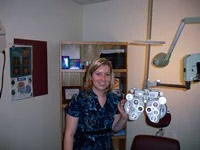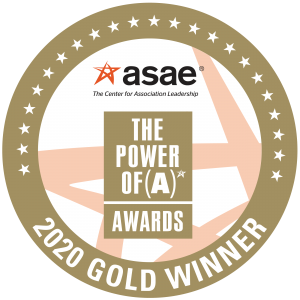Optometry: Good Work, Good Life
When it comes to being a great career choice, optometry always makes the list. Literally. A variety of outlets, including the Washington Post, Kiplinger and CNNMoney, routinely rank optometry with other vocations they deem, for example, “top industries for women entrepreneurs” or “best careers.” A big reason optometry gets noticed in this way is the satisfying work/life balance it can provide relative to other professions.

As an undergraduate, Dr. Anderson shadowed many different professionals in health care and made a point to ask them about their work/life balance. “The more I interacted with non-optometrists, the more I knew which direction I should go,” he says. “I’m quite fortunate to work for a private practice that also values a positive work/life balance. Knowing that was an important part of my decision to join them. I really enjoy working, but I REALLY enjoy playing. Having the freedom to spend time with my family and doing the things I love is critical.”




Dr. Park currently works six days a week in three different settings: as an associate optometrist in two private practices in Sacramento, Calif., and as an independent optometrist with JC Penney/US Vision. He also is a member of the board of directors of the Sacramento Valley Optometric Society. “As a recent graduate of optometry school, I do work a lot and I don’t have as much free time as I would like, but I know I’ll have more free time in the future,” he says. “I can take time off if I request it in advance. With my current jobs I have great flexibility in my schedule because my bosses and I have very similar thoughts about the profession and work/life balance. I enjoy a bunch of hobbies — golf, tennis, road cycling, photography — and having a stable work environment does allow me to enjoy them. I’m also lucky to have great friends, family and colleagues who have similar hobbies and interests, which makes the balance of work/life easier.”

Benjamin M. Arthur, OD, MS, is another good example of how optometrists can choose their own paths from a variety of options. Although his life philosophy and faith dictate that balance in human endeavors is important, he doesn’t believe any career automatically provides it. Rather, he says, “I think work/life balance depends on an individual and his or her goals as they relate to professional and personal life.” And, as it turns out, Dr. Arthur’s goals recently changed. After he graduated from State University of New York College of Optometry in 2013, he worked in a couple of different practice settings. But about six months ago, he opened his own practice in the Crown Heights section of Brooklyn: Perspective Family Eye Care. He spends eight hours a day four days a week working there and two days a week working at another private practice in Brooklyn.

Rachelle Lin, OD, MS, FAAO, too, says, there are times when she’s extremely busy working, but it’s perfectly fine with her because “there is just so much that I want to do in optometry.” Dr. Lin graduated in 2013 from SCCOMBKU and is now a member of the college’s faculty as an assistant professor. Her teaching areas include low vision rehabilitation and acquired brain injury. She works on campus Monday through Friday, and her hours vary slightly depending on her clinic and didactic teaching schedule.
As she sees it, “I feel that optometry offers the opportunity for a good work/life balance. However, I don’t feel that is the principle question to ask when picking a career. I believe the more important question to ask is whether or not you are passionate about optometry and about building it into the career you will love.” Dr. Lin says she’s had an interest in teaching for many years, so finding a job where she could be both an optometrist and a teacher was ideal. She also says she’s always been the type of person to juggle a large number of varied activities in order to do everything she’s wanted to do. That’s true today as well, as she takes care of her work on campus, her roles in optometry off campus, which include serving as secretary-treasurer of the California Optometric Association’s Low Vision Rehabilitation Section, and her personal activities, such as learning about different cultures through art, language, music or food. “I also make time to travel, even if it’s for short weekend trips,” she says, “and I feel extremely fortunate to be working in a field that I am passionate about.”





